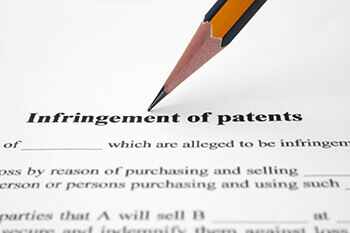Intellectual Property Law
What is a Post Grant Proceeding?
Post-grant proceedings are proceedings conducted by the USPTO after a patent has issued. These proceedings include:
- Inter Partes Review (IPR)
- Post Grant Review (PGR)
- Supplemental Examination
- Ex Parte Reexamination
- Reissue
Inter Partes Review (IPR)
Inter Partes Review (IPR) allows a third party to challenge the validity of a patent based only on issues of novelty and obviousness. An IPR can be requested any time after at least 9 months following the issuance of the patent (or after completion of a Post Grant Review proceeding), and up until expiration of the patent. The documents for consideration are limited to patents and printed publications. Once instituted, both the requesting third party and the patent owner will have a limited opportunity for discovery, and the patent owner can make a motion to amend the claims, if necessary. The IPR is to conclude within 1 year, although extensions of up to 6 months are possible for good cause.
Post Grant Review (PGR)
Post Grant Review (PGR) allows a third party to challenge the validity of a patent under all statutory grounds for invalidity, including patent ineligible subject matter, novelty and obviousness, written description, enablement, indefiniteness, and double patenting. However, the PGR must be requested within 9 months of issuance of the patent. Similar to an IPR, the PGR procedure is conducted before the Patent Trial and Appeal Board (PTAB), rather than before a sole examiner. The PGR is to conclude within 1 year, although extensions of up to 6 months are possible for good cause.
Supplemental Examination
Supplemental Examination allows the patent owner to cure any issues related to an allegation of inequitable conduct. Any potential issue can be raised in a Supplemental Examination proceeding, including questions regarding patent-eligible subject matter, novelty, non-obviousness, written description, enablement, definiteness, and double patenting. Information to be considered during a Supplemental Examination may include any information that the patent owner believes to be relevant to the patent, including patents and printed publications, prior sales, or public use. Once instituted, the Supplemental Examination will proceed like a Reexamination of the patent, and therefore will be handled by an examiner.
Ex Parte Reexamination
Ex Parte Reexamination allows any person (the patent owner, a competitor, or another interested party) to request reexamination of an issued patent at any time during the enforceability of the patent. The issues for consideration are limited to questions of novelty and obviousness, and the documents for consideration are limited to patents and printed publications. The process is handled by an examiner in the same manner as the initial examination process, and so the patent owner and the USPTO are the only parties involved.
Reissue
Reissue proceedings occur when an issued patent, through error, is considered to be “wholly or partly inoperative or invalid.” This proceeding is available only to the patent owner. Typical errors include claiming too much or too little, a defective specification, or a defective priority claim. This is the only procedure available by which the claim scope can be broadened, but any such broadening reissue application must be filed within 2 years of the issue and is subject to additional limitations such as the prohibited recapture of subject matter surrendered during initial prosecution.

Catherine Rajwani
Principal Attorney
PHONE: 508-393-9244
EMAIL: crajwani@harborlaw.com
Catherine Rajwani is an intellectual property and business litigation attorney.
Ms. Rajwani handles a full range of intellectual property and business issues in her practice including patent, trademark, copyright, trade secret, contract and business tort disputes. She has participated in all phases of litigation, from pre-litigation counseling through trial and appeal, in federal courts throughout the country. She is also skilled in alternative dispute resolution proceedings.
Find out more about issues in our related practice areas
Intellectual Property Law
Trademark Protection
Trade Secrets
Copyrights
Patents
Intellectual Property Law
Insights, opinions and decisions you should know about

Defend Trade Secrets Act: Two Years Later
It has been more than two years since President Obama signed the Defend Trade Secrets Act (DTSA) into law, which created a federal, private, civil cause of action for trade-secret misappropriation in which “[a]n owner of a trade secret that is misappropriated may...

Where Do You Sue for Patent Infringement? – Proper Venue Post ‘TC Heartland’
In May of 2017, the Supreme Court unanimously reversed the Federal Circuit’s 25-year-old precedent on venue for corporate defendants.[1] Venue is the proper or most convenient location for trial of a case, and is governed by state and federal statutes. The 10-page...

Cost-Effective Mechanisms for Enforcing Intellectual Property Rights
In my practice, I counsel small and midsize business clients, many of which are astute with regard to securing their intellectual property rights. They have federally registered their trademarks with the U.S. Patent and Trademark Office, secured a portfolio of patents...

How Do I Defend a Patent Lawsuit?
The Top 5 Ways to Defend Your Company in Patent Infringement Litigation You discover that your company has been sued for patent infringement. After reviewing the patent cited in the complaint, you determine that the technology described relates to your company’s...
Get in touch with us.
Learn more about how we can help.